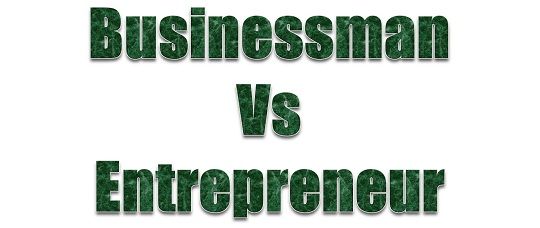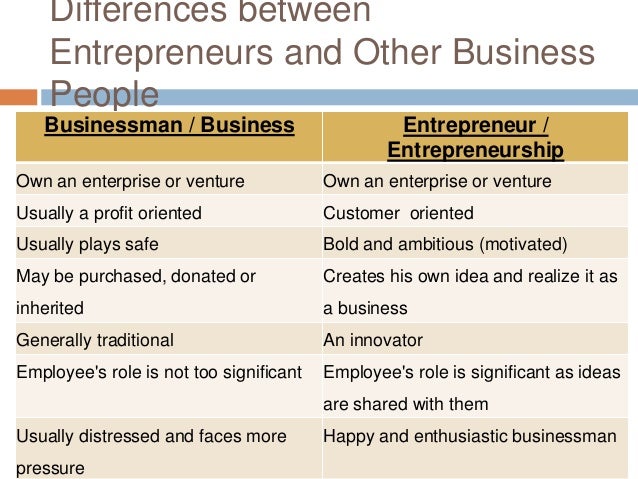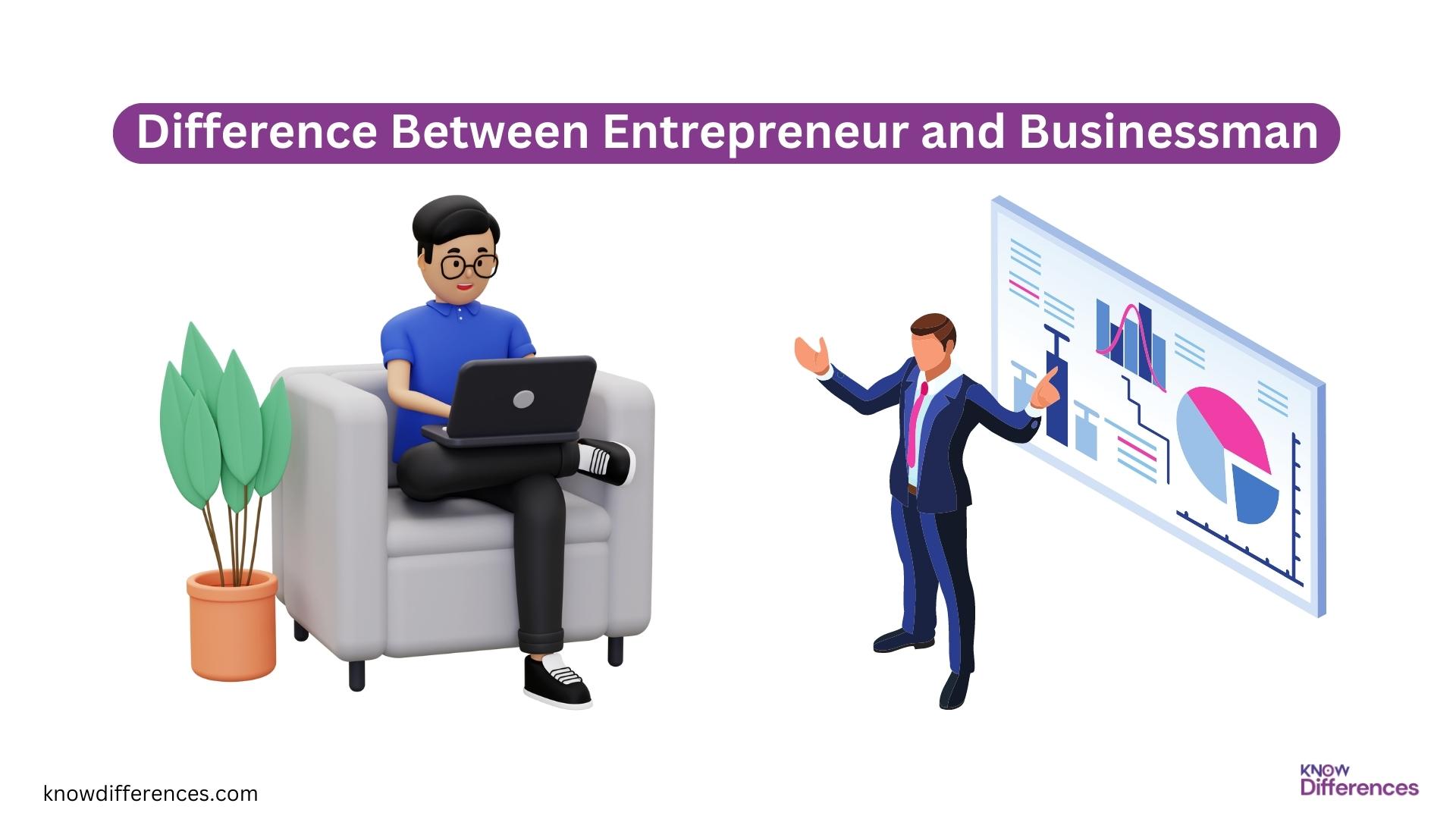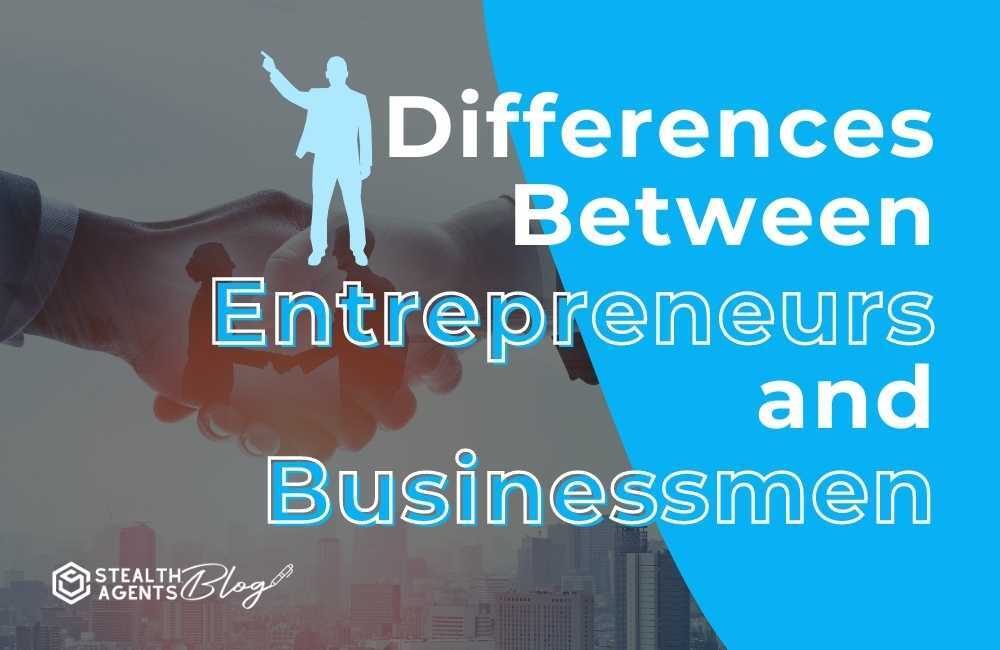Businessman And Entrepreneur Difference
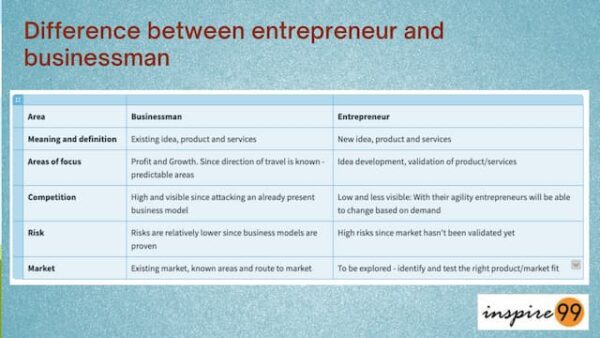
The business world often uses the terms "businessman" and "entrepreneur" interchangeably, creating a haze of misunderstanding around their distinct roles. While both contribute to economic activity, their motivations, risk tolerance, and approaches to innovation diverge significantly, impacting their business strategies and ultimate success.
This article dissects the core differences between a businessman and an entrepreneur, exploring their approaches to opportunity, risk, innovation, and overall business philosophy. Understanding these distinctions is crucial for aspiring business leaders, investors, and anyone seeking clarity in the dynamic landscape of modern commerce. We will delve into established definitions and examine practical examples to highlight these differences.
Defining the Businessman
A businessman primarily focuses on maintaining and growing an existing business. Their focus is on operational efficiency, profitability, and managing established processes.
Typically, a businessman inherits a business or acquires a franchise and works to optimize its performance within the existing market structure. They aim for sustainable, predictable growth.
Key Characteristics of a Businessman
Risk Aversion: Businessmen generally prefer minimizing risk and sticking to proven strategies. They avoid high-stakes ventures that could jeopardize existing operations. A businessman typically prioritizes stability over rapid expansion.
Efficiency Focus: Optimization is paramount. Streamlining processes, reducing costs, and increasing productivity are central to their approach. This leads to predictable and reliable outcomes, often at the expense of innovation.
Market Orientation: A businessman typically caters to existing market demands with established products or services. Adapting to current customer needs while remaining within the constraints of their existing business model is key.
Defining the Entrepreneur
An entrepreneur, on the other hand, is a visionary who identifies a gap in the market or creates a new one. They are driven by innovation and a desire to disrupt existing industries.
Entrepreneurs take calculated risks to bring novel ideas to life, often starting from scratch. They are passionate about building something new and leaving a lasting impact.
Key Characteristics of an Entrepreneur
Risk Tolerance: Entrepreneurs are comfortable with uncertainty and are willing to take significant risks to pursue their vision. They view failure as a learning opportunity and persevere through challenges.
Innovation Driver: Creating something new or significantly improving existing solutions is at the heart of the entrepreneurial spirit. Their focus is on disruptive technologies, business models, or products that redefine the market landscape. This often involves creating entirely new markets.
Visionary Leadership: An entrepreneur possesses a strong vision for the future and inspires others to join their journey. They are skilled at attracting talent, securing funding, and building a dynamic and adaptable team to realize their vision.
Comparing the Two: A Head-to-Head Look
The differences become clearer when comparing their approach to core business functions. Consider their attitude toward funding.
A businessman may seek loans to expand existing operations, whereas an entrepreneur actively pursues venture capital to fuel rapid growth of a novel concept. The entrepreneur is comfortable diluting ownership for the sake of aggressive expansion, while the businessman prefers to maintain control and minimize debt.
"The entrepreneur always searches for change, responds to it, and exploits it as an opportunity." - Peter Drucker
Furthermore, their leadership styles differ. A businessman may rely on established hierarchical structures, while an entrepreneur often fosters a collaborative and agile environment. Communication is another crucial differentiator.
Entrepreneurs are adept at pitching their ideas to investors and customers, while businessmen focus on internal communications and operational updates. The entrepreneur is inherently a marketer of their vision.
The Blurring Lines and the Future
In reality, the lines between businessman and entrepreneur are not always clear-cut. Some businessmen adopt entrepreneurial strategies to stay competitive, and some entrepreneurs eventually transition into more managerial roles as their businesses mature. Moreover, many successful ventures require both entrepreneurial vision and strong managerial execution.
The modern business environment increasingly demands adaptability and innovation. Therefore, successful individuals often embody a hybrid of both businessman and entrepreneur qualities.
Moving forward, the ability to embrace calculated risks, foster innovation, and manage established operations will be crucial for success in the rapidly evolving global market. The next generation of business leaders will need to be entrepreneurial in spirit and managerial in execution, capable of navigating complexity and driving sustainable growth.









